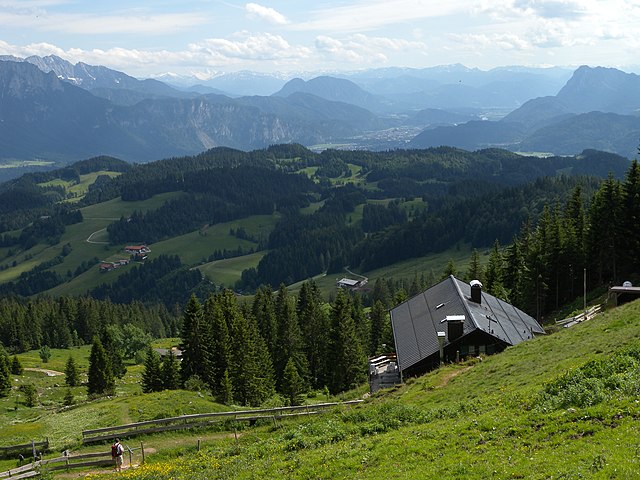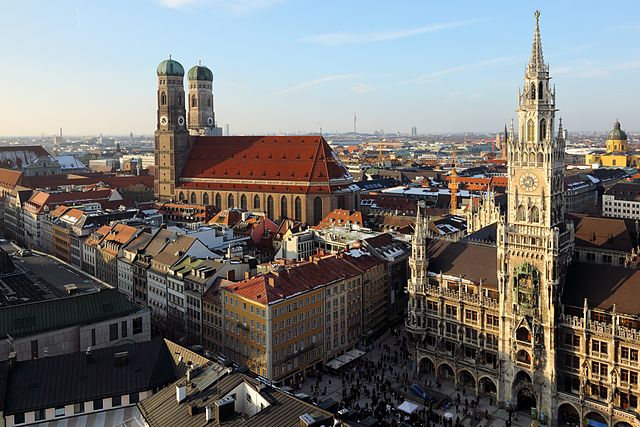Kurt Eisner was a German politician, revolutionary, journalist, and theatre critic. As a socialist journalist, he organized the socialist revolution that overthrew the Wittelsbach monarchy in Bavaria in November 1918, which led to him being described as "the symbol of the Bavarian revolution". He is used as an example of charismatic authority by Max Weber. Eisner subsequently proclaimed the People's State of Bavaria but was assassinated by far-right German nationalist Anton Graf von Arco auf Valley in Munich on 21 February 1919.
Kurt Eisner
Monument to Kurt Eisner on the sidewalk where he fell when he was assassinated in Munich
Bavaria, officially the Free State of Bavaria, is a state in the southeast of Germany. With an area of 70,550.19 km2 (27,239.58 sq mi), it is the largest German state by land area, comprising roughly a fifth of the total land area of Germany. With over 13 million inhabitants, it is the second most populous German state behind North Rhine-Westphalia, but due to its large physical size its population density is below the German average. Major cities include Munich, Nuremberg, and Augsburg.
A memorial to soldiers who died in World War I and World War II in Kröning, Bavaria
The Bavarian Alps (foreground) and Tyrol in Austria (background), including the Inn valley (center), Kaisergebirge (left), Pendling (right), and the snow-capped High Tauern (center left)
Munich with Frauenkirche (left) and Rathaus, Munich's town hall
The Bavarian State Chancellery in Munich






